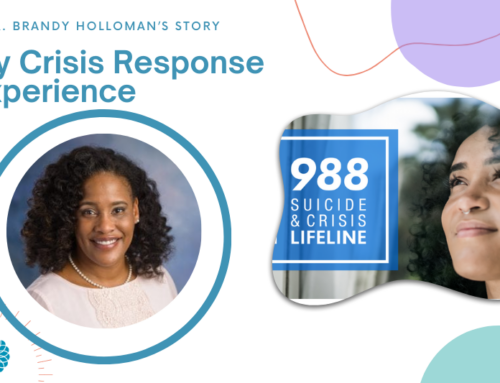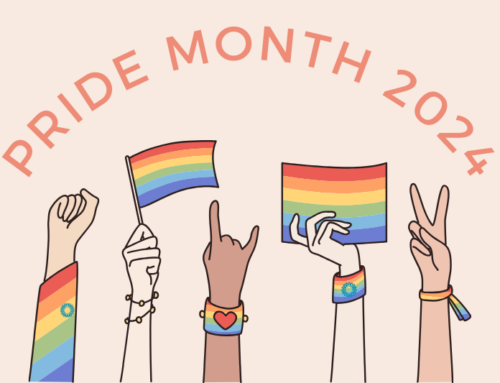This article was originally written for The National Training and Technical Assistance Center for Child, Youth, and Family Mental Health (NTTAC). It is written by Change Matrix Change Consultant Ghia Kelly.
Welcome to the 5 Things Digest from the NTTAC Equity Team, bringing you 5 Things to know right now about Ways White Allies Working in Behavioral Health Can Support Their BIPOC Colleagues and Advance Equity.
Equity work is exhausting for all who engage in it, but its impact on Black, Indigenous, and people of color (BIPOC) working in system of care programs is much more intense. For BIPOC, the burden of equity work is compounded by the daily stressors of interpersonal and systemic racism, microaggressions, and racial bias, as well as the labor of helping others navigate their mental wellness. These stressors contribute to racial weathering, the harmful effect of repeated exposure to socioeconomic adversity, political marginalization, racism, and perpetual discrimination on the emotional and physical well-being of marginalized populations (Sandoiu, 2021).
White allies working in mental wellness and system of care organizations play an important role in advancing equity and antiracist practices. However, research shows that some of their attitudes and behaviors can elevate stress and burnout in their BIPOC colleagues. For instance, a recent study by Gorski & Erakat (2019) shows that U.S. racial justice activists of color who experienced burnout attributed their burnout to white activists’ racist attitudes and behaviors.
Drawing on that research, we bring you five ways white people working in system of care organizations can support their BIPOC colleagues, lessening their stress and burnout. This information is followed by additional resources from NTTAC’s Equity Team.
#1: Do the internal work necessary to challenge biases and racist views.
Equity must start internally before it can manifest externally. Gorski & Erakat found that white activists often perceived themselves as being more racially conscious than they actually were. White allies in system of care organizations have a responsibility to challenge their own racist views and educate themselves on things like racism, privilege, and cultural humility. The burden should not fall on BIPOC equity practitioners to educate their white colleagues, nor should it fall on BIPOC youth, young adults, or families being served by them. White allies must commit to a process of lifelong learning that involves listening to and learning from those whose mental health and well-being have been directly affected by racism and racial inequities.
#2: Amplify the voices of BIPOC equity practitioners and encourage them to lead.
It is not uncommon for BIPOC equity practitioners who are working in mental wellness and system of care organizations to feel undermined and devalued by white colleagues. In mental wellness and system of care organizations, equity work must involve amplifying the voices of those who have been marginalized and oppressed by social service personnel and systems; these voices have often been silenced or ignored because of systemic racism and systemic barriers. Amplifying BIPOC voices is not about making white allies feel bad (or good) about themselves; it is also not about doing people of color a favor. Rather, it’s about honoring the experiences and insight of those whose lives are most affected by the mental health disparities, inequities, and injustices they seek to address. In addition to amplifying marginalized voices, white allies working in In mental wellness and system of care organizations must be willing to encourage their BIPOC colleagues and youth, young adults, and family members to lead and be willing to listen, learn, and implement findings gained from those practices.
#3: Be courageous and committed enough to take action.
Fifty percent of activists of color in the Gorski & Erakat study attributed their burnout to the strain caused when white activists were unwilling to step up and take action to advance antiracism goals. Understandably, this can lead to feelings of distrust and frustration among BIPOC colleagues. True allyship requires that white allies stand in solidarity with their BIPOC colleagues. Solidarity means committing to doing the work without solely relying on oppressed communities to provide education or affirmation (Women’s College Hospital, 2022). Equity and antiracism work requires courage—the courage to speak up, courage to challenge the thoughts and behaviors of others, and courage to challenge the status quo. These actions are critical in cultivating positive and sustainable mental wellness outcomes for youth, young adults, families, and communities. The Dismantle Collective says this about white allyship:
“A white ally does not remain silent but confronts racism as it comes up daily, but also seeks to deconstruct it institutionally and live in a way that challenges systemic oppression … White allies don’t have it all figured out but are deeply committed to non-complacency.”
#4: Embrace feelings of discomfort and be open to honest feedback.
According to Robin DiAngelo (2015), an author and researcher of whiteness studies and critical discourse analysis, white people have extremely low thresholds for enduring any discomfort associated with challenges to their racial worldviews and become highly fragile in conversations about race. She calls this concept “white fragility.” In their study, Gorski & Erakat found that 44.4% of activists of color attributed their burnout in part to white fragility that manifested as defensive outbursts, playing the victim, uncontrollable crying, and leaving the room. Conversations about race and racism can be difficult and uncomfortable for both BIPOC and white mental wellness and system of care equity practitioners, but the conversation is necessary. Instead of running from the discomfort, white allies must learn to lean into it. This includes being able to receive honest and constructive feedback from BIPOC colleagues, as well as from youth, young adults, and families who are receiving mental wellness services about their experiences. Individuals and families receiving services should be encouraged and welcomed to share their feedback and should not fear retaliation. Self-awareness and humility are traits that white allies must develop and strengthen if they want to advance equity and antiracism and support BIPOC individuals, families, and communities in being their best.
#5: Give colleagues of color credit for their work.
Simply put, white allies working in mental wellness and system of care organizations must be willing to abandon their need for the spotlight. The need to be at the forefront of equity work by some white allies has led to them exploiting their BIPOC colleagues for their own benefit. This not only erodes the trust of their BIPOC colleagues, but also elevates their stress levels and contributes to their burnout. In the study by Gorski & Erakat, activists of color reported that their white colleagues accepted benefits for their ideas and work, such as credit, recognition, leadership positions, and speaking invitations. They also described white colleagues speaking over them, speaking for them, or asserting their expertise where it was not warranted. It’s important that white allies working in mental wellness and system of care organizations regularly assess and challenge their motivations and their biases.
In conclusion, white allies play a critical role in advancing equity and antiracist practices in mental wellness and system of care programs. Their support and solidarity are invaluable and help to ensure that BIPOC individuals are not carrying the weight of the work alone. Equity work requires an “all hands on deck” approach and BIPOC youth, young adults, families, and practitioners simply cannot do it alone.
White allies are needed who are courageous, teachable, self-aware, committed to the cause, and willing to amplify the voices of BIPOC colleagues, youth, young adults, and families. The five strategies that have been outlined help to ensure that the actions and approach of white allies in mental wellness and system of care organizations are helpful to BIPOC individuals, families, and communities and not harmful.
Reflection Questions for white allies in mental health and system of care organizations
- What actions can I take to increase my understanding of racism and its impact on BIPOC individuals, families, and communities?
- How can I embrace my discomfort as a necessary component of my equity and anti-racism journey?
- What is the “why” that I will ground myself in when I feel frustrated, overwhelmed, scared, or powerless to make a change?
- What are my beliefs/ biases about the capacity of BIPOC colleagues, youth, young adults, and families to lead?
- What actions can I take today to amplify and honor the voices of BIPOC individuals, families, and communities?
Resources for white allies in mental health and system of care organizations
DiAngelo, R. (2015). White fragility: Why it’s so hard to talk to white people about racism.
DiAngelo, R. (2021). Nice racism: How progressive white people perpetuate racial harm. Beacon Press.
Dismantle Collective. White Allyship Resources.
Gorski, P. C. & Erakat, N. (2019). Racism, whiteness, and burnout in antiracism movements: How white racial justice activists elevate burnout in racial justice activists of color in the United States. Ethnicities, 19 (5), pp. 784-808.
Sandoiu, A. (2021). ‘Weathering’: What are the health effects of stress and discrimination. Medical News Today.
Women’s College Hospital (2022). Standing in solidarity vs. Allyship.




